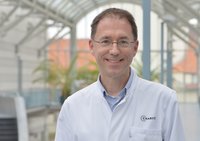Specialised and organ-specific working groups
The specialist and organ-specific working groups (FOSA) serve the internal and interdisciplinary exchange between the various medical specialities and organs and have important functions within the network: they comment on datasets and subject them to revision, they use data and biosamples for research, they support agenda-setting in NUM, comment on calls and applications and participate in the Use & Access procedure. The patient representation working group, which represents the patient perspective within NUM, is on an equal footing with the FOSA.
The FOSA spokespersons also form the Advisory Board, which meets regularly and supports the further development of NUM at an interdisciplinary level. The FOSA is open to doctors and scientists. This website shows the existing FOSAs, their goals and their research priorities. If you have any questions, would like to join an existing FOSA or set up a new FOSA, please contact fosa@nukleus.netzwerk-universitaetsmedizin.de
Specialised and organ-specific working groups (FOSA)
The Patient Representation Working Group has the same status as the FOSA and is intended to represent the patient perspective within the NUM. The Long COVID Germany Patient Initiative already had an advisory role in NAPKON. The establishment of this working group will further strengthen the representation of the patient perspective within the entire network. Various patient associations throughout Germany have been invited. If you would like to support the AG Patient:innenvertretung with your commitment or if you have any questions, please write to fosa@nukleus.netzwerk-universitaetsmedizin.de.

FOSA spokesperson
Frank Feles
Location: Self-help group "Life with and after COVID" Duisburg
This working group is currently being set up. If you are interested in joining the working group, please send an email to fosa@nukleus.netzwerk-universitaetsmedizin.de.
Around 4 million people in Germany are affected by one of the approximately 8,000 different rare diseases, which are often complex and require highly specialised diagnostics, interdisciplinary and inter-organ care and innovative therapy. In its 2016 statement "Perspectives of University Medicine", the German Council of Science and Humanities particularly emphasised the care of rare diseases and research in this field by university medicine. The strength of the Rare Diseases Working Group is the excellent networking between the participating sites and the ability to successfully address innovative issues. One focus of work will be the creation of structures and processes for generating evidence for (ultra-)rare diseases, be it on the natural course, pathophysiology or therapy. Scalable use cases for rare diseases can initiate important developments and evaluate them on a small scale for suitability for everyday use. Conversely, research into rare diseases in particular can benefit from digital developments for networking in the NUM.
FOSA General Medicine has set itself the goal of focussing on the specifics of mild outpatient SARS-COV-2 infections.

FOSA spokesperson
Prof Stefanie Joos
Location: University Hospital Tübingen Institute of General Medicine and Interprofessional Care
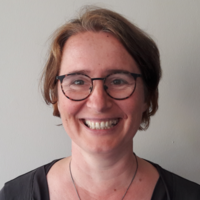
FOSA spokesperson
Prof Ildikó Gágyor
Location: University Hospital Würzburg Institute of General Medicine
Focal points
- Outpatient parameters and patient-oriented outcomes in the acute course are evaluated and the supply chains are analysed in this context.
- Another focus is the investigation of persistent symptoms (post/long COVID), the vast majority of which are treated by General Practitioners.
- In addition to frequencies and risk factors, the main focus is on the evaluation of patient-oriented outcomes, utilisation of care services, hospitalisations, rehabilitation measures initiated and prescriptions for remedies, medication prescriptions and ability to work.
As the central department of every hospital, anaesthesiology has points of contact with almost all disciplines. This makes it an important cooperation partner for interdisciplinary exchange and collaboration on research issues. In addition to the in-hospital management of COVID-19 patients from emergency to intensive medical care during the pandemic, COVID secondary diseases are now increasingly presenting anaesthesiological care with new challenges. In order to investigate the interaction between COVID sequelae and risk stratification for surgery, there are various initiatives across Germany that FOSA can support and coordinate.

FOSA spokesperson
Dr Beatrice Oehler
Location: University Hospital Essen, Clinic for Anesthesiology and Intensive Care Medicine
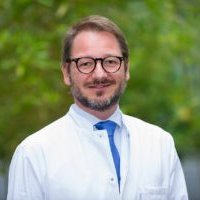
FOSA spokesperson
PD Dr Thomas Saller
Location: LMU Klinikum München Clinic for Anaesthesiology
Focus areas
- COVID/Long-COVID and perioperative neurocognitive deficits.
- COVID/Long-COVID as a risk for perioperative pain chronification.
- Special features of perioperative care after COVID disease (especially pulmonary and cardiovascular).
- Biomarkers for risk stratification.
FOSA Dermatology deals with the frequency and relevance of dermatological symptoms in the context of COVID disease, investigation of the relationship between dermatological symptoms and the course/outcome of COVID disease (this as part of a module).
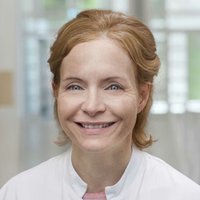
FOSA spokesperson
Prof Selma Ugurel
Location: University Hospital Essen Clinic for Dermatology, Venereology and Allergology

FOSA spokesperson
Prof Jessica Hassel
Location: University Dermatology Clinic at the National Center for Tumor Diseases (NCT) Heidelberg
This working group is currently being set up. If you are interested in participating in the working group, please send an email to fosa@nukleus.netzwerk-universitaetsmedizin.de.
FOSA Diabetology aims to record the frequency of diabetes and complications caused by the disease in the inpatient sector. The group aims to establish an evidence-based, economically optimised care structure for diabetes, from prevention to therapy. So far, 14 university hospitals are involved in the working group.
FOSA Epidemiology and Public Health is open to physicians and scientists for collaboration and networking. It is in close professional and methodological dialogue with the Epidemiology Core Unit (ECU) of the NUM Epidemiology and Study Platform (NUKLEUS) and is involved in the following NUM projects: CODEX+ extension of the Data Exchange Platform, CollPan, Immunebridge, MethodCOV, PREPARED and NAPKON - projects on data quality, primary coding and analysis strategies. FOSA Epidemiology and Public Health organised FOSA Lecture 5 on the topic of "Methodological aspects of evidence generation".
FOSA spokesperson
Prof Dr med Nicole Skoetz
Location: Director of the Institute of Public Health, University of Cologne
FOSA spokesperson
Prof Dr Marcus Dörr
Location: University Hospital Greifswald, Clinic and Polyclinic for Internal Medicine B
Focus areas
Focal points include the distribution of SARS-CoV-2 infection risks and COVID-19 disease risks in the population, identification of risk and protective factors, study designs for COVID-19 studies and consequences of the COVID-19 pandemic for clinical studies in other diseases.
Research projects
- Impact of COVID-19 on functional capacity(2021-10_25_Grill_FunkCovid).
- Social inequalities in COVID-19: The role of pre-existing social characteristics and health care utilisation in explaining elevated risk of severe disease progression(2021-04-29_Hoven_Hanno_SocialPredictors).
- First results of the cross-sector platform (SÜP) of the NAPKON cohort(2021-04-15_Geisler_Ramsia_SUEP_First_Results).
Publications
- Anker SD, Butler J, Khan MS, Abraham W, Bauersachs J, Bocchi E, Bozkurt B, Braunwald E, Chopra VK, Cleland JG, Ezekowitz J, Filippatos G, Friede T, Hernandez A, Lam CS, Lindenfeld J, McMurray JJ, Mehra M, Metra M, O'Connor C, Packer M, Pieske B, Pocock S, Ponikowski P, Rosano GMC, Teerlink J, Tsutsui H, Van Veldhuisen DJ, Verma S, Voors AA, Wittes J, Zannad F, Zhang J, Seferovic P, Coats AJS (2020). Conducting Clinical Trials in Heart Failure During (and After) the COVID-19 Pandemic: An Expert Consensus Position Paper from the Heart Failure Association (HFA) of the European Society of Cardiology (ESC). European Heart Journal 41; 2109-2117.
- Backhaus I, Hoven H, Conte A, di Tecco C, Sergio I, Dragano N (2022). Economic change and population health: Lessons learnt from an umbrella review on the Great Recession. BMJ Open e060710. doi:10.1136/bmjopen-2021-060710
- Beermann S, Dörr M, Grill E, Karch A, Lange B, Zeeb H (2022). Corona pandemic: The role of epidemiological research in health crises. Dtsch Arztebl 119(17): A-753 / B-621 https://www.aerzteblatt.de/archiv/224889/Coronapandemie-Die-Rolle-epidemiologischer-Forschung-in-Gesundheitskrisen (collaboration with DGEpi)
- Beyersmann J, Friede T, Schmoor C (2022). Design aspects of COVID-19 treatment trials: Improving probability and time of favourable events. Biometrical Journal 64: 440-460.
- Czypionka T, Iftekhar EN, Prainsack B, Priesemann V, Bauer S, Calero Valdez A, Cuschieri S, Glaab E, Grill E, Krutzinna J, Lionis C, Machado H, Martins C, Pavlakis GN, Perc M, Petelos E, Pickersgill M, Skupin A, Schernhammer E, Szczurek E, Tsiodras S, Willeit P, Wilmes P (2022). The benefits, costs and feasibility of a low incidence COVID-19 strategy. Lancet Reg Health Eur 13:100294. doi: 10.1016/j.lanepe.2021.100294.
- Friedrich S, Friede T (2020). Causal inference methods for small non-randomised studies: Methods and an application in COVID-19. Contemporary Clinical Trials 99: 106213.
- Hoven H, Dragano N, Angerer P, Apfelbacher C, Backhaus I, Hoffmann B, Icks A, Wilm S, Fangerau F, Söhner F (2022). Striving for health equality: The importance of social determinants of health and ethical considerations in pandemic preparedness planning. International Journal of Public Health. International Journal of Public Health 67:1604542. doi: 10.3389/ijph.2022.1604542
- Iftekhar EN, Priesemann V, Balling R, Bauer S, Beutels P, Calero Valdez A, Cuschieri S, Czypionka T, Dumpis U, Glaab E, Grill E, Hanson C, Hotulainen P, Klimek P, Kretzschmar M, Krüger T, Krutzinna J, Low N, Machado H, Martins C, McKee M, Mohr SB, Nassehi A, Perc M, Petelos E, Pickersgill M, Prainsack B, Rocklöv J, Schernhammer E, Staines A, Szczurek E, Tsiodras S, Van Gucht S, Willeit P (2021). A look into the future of the COVID-19 pandemic in Europe: an expert consultation. Lancet Reg Health Eur 100185. doi: 10.1016/j.lanepe.2021.100185.
- Kapsner LA, Kampf MO, Seuchter SA, Gruendner J, Gulden C, Mate S, Mang JM, Schüttler C, Deppenwiese N, Krause L, Zöller D, Balig J, Fuchs T, Fischer P, Haverkamp C, Holderried M, Mayer G, Stenzhorn H, Stolnicu A, Storck M, Storf H, Zohner J, Kohlbacher O, Strzelczyk A, Schüttler J, Acker T, Boeker M, Kaisers UX, Kestler HA and Prokosch H-U (2021) Reduced Rate of Inpatient Hospital Admissions in 18 German University Hospitals During the COVID-19 Lockdown. Front. Public Health 8:594117. doi: 10.3389/fpubh.2020.594117
- Kunz CU, Silke Jörgens S, Bretz F, Stallard N, Van Lancker K, Xi D, Zohar S, Gerlinger C, Friede T (2020). Clinical trials impacted by the COVID-19 pandemic: Adaptive designs to the rescue? Statistics in Biopharmaceutical Research 12: 461-477.
- Mütze T, Friede T (2020). Data monitoring committees for clinical trials evaluating treatments of COVID-19. Contemporary Clinical Trials 98: 106154.
- Priesemann V, Balling R, Bauer S, Beutels P, Valdez AC, Cuschieri S, Czypionka T, Dumpis U, Glaab E, Grill E, Hotulainen P, Iftekhar EN, Krutzinna J, Lionis C, Machado H, Martins C, McKee M, Pavlakis GN, Perc M, Petelos E, Pickersgill M, Prainsack B, Rocklöv J, Schernhammer E, Szczurek E, Tsiodras S, Van Gucht S, Willeit P (2021). Towards a European strategy to address the COVID-19 pandemic. Lancet 398(10303):838-839. doi: 10.1016/S0140-6736(21)01808-0.
- Stallard N, Hampson L, Benda N, Brannath W, Burnett T, Friede T, Kimani PK, Koenig F, Krisam J, Mozgunov P, Posch M, Wason J, Wassmer G, Whitehead J, Williamson SF, Zohar S, Jaki T (2020). Efficient adaptive designs for clinical trials of interventions for COVID-19. Statistics in Biopharmaceutical Research 12: 483-497.
This working group is currently being set up. If you are interested in participating in the working group, please send an email to fosa@nukleus.netzwerk-universitaetsmedizin.de.
Nutritional medicine plays an important role at university hospitals, particularly with regard to disease-related malnutrition and the treatment of rare metabolic diseases. However, it is still little known that malnutrition worsens the prognosis with regard to infectious and non-infectious complication rates, leads to reduced quality of life and increased mortality, not least in obese patients. The care of vulnerable groups such as geriatric patients, children and people with tumour diseases is of central interest here and would benefit greatly from the coordinated collection and analysis of clinical data as part of a FOSA of the NUM. The FOSA Nutritional Medicine has the following objectives:
- Elucidate underlying mechanisms of nutritional adaptation disorders in acute diseases.
- Establish nutritional medicine approaches of precision medicine for individualised nutritional interventions in common diseases.
- Develop concepts for the prevention, recognition and treatment of disease-related malnutrition.
FOSA Geriatrics offers everyone the opportunity to share their experience in dealing with complex elderly patients. The (Comprehensive Geriatric) Assessment provides the appropriate tool for this. Whilst frailty is an important factor in defining multimorbid complex patients, there is no gold standard for defining frailty itself.
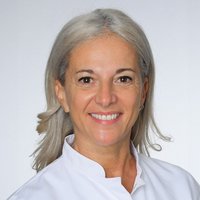
FOSA spokesperson
Prof M. Cristina Polidori
Location: University Hospital Cologne, University Geriatric Medicine

FOSA spokesperson
Prof Andreas Simm
Location: University Hospital Halle (Saale), Heart Centre Central Germany
Focal points
FOSA Geriatrics therefore focusses on evaluating and further developing the various frailty models. In the context of multimorbidity, the focus is on degenerative diseases and syndromes such as sarcopenia, obesity, cardiovascular diseases and dementia. Analysing biomarkers of ageing, and in particular the ageing immune system, should provide additional predictors for the assessment of patients, including in the context of Covid.
FOSA Gynaecology and Obstetrics deals with pregnancy and childbirth in connection with a COVID-19 infection.
FOSA spokesperson
Prof Dr Ulrich Pecks
Location: Professorship for Maternal Health and Midwifery Science, Head of the Department of Obstetrics and Maternofetal Medicine, Prenatal Diagnostics according to DEGUM Level II, University Hospital Würzburg
FOSA spokesperson
Prof Dr Tanja Groten
Location: University Hospital Jena, Clinic for Obstetrics
Focal points
- Course of pregnancy and COVID infection/vaccination, spontaneous conception vs. ART.
- Management of severe courses during pregnancy, delivery or prolongation of pregnancy?
- Long-COVID in children and mothers after infection during pregnancy.
Patients with underlying oncological or haematological diseases represent a very heterogeneous group. In addition, these patients are often affected by a weakened immune system due to their disease or their therapies, which poses a risk of a severe course of SARS-CoV-2 infection. The aim of the research is to better protect these patients.
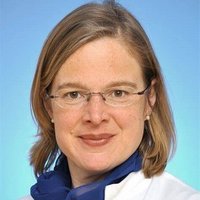
FOSA spokesperson
Prof Marie von Lilienfeld-Toal
Location: Friedrich Schiller University, Jena Department of Internal Medicine II, Division of Haematology and Internal Oncology
Focal points
The data obtained from NAPKON etc. help to focus on the following topics within the framework of FOSA Haematology/Oncology:
- Epidemiology of COVID-19 in the oncological collective The reciprocal influence of COVID-19 and the immune system of oncological patients.
- Identification of prognostic/therapeutic markers of COVID-19 disease or long-COVID complications in cancer patients.
Epidemiology, pathophysiology, diagnostics and therapy of persistent olfactory and gustatory disorders after SARS-CoV-2 infection.
FOSA spokesperson
Dr Annett Pudszuhn
Location: Charité - Universitätsmedizin Berlin, Clinic for Ear, Nose and Throat Medicine
FOSA spokesperson
Prof Dr Martin Laudien
Location: University Hospital Schleswig-Holstein, Department of Otorhinolaryngology, Head and Neck Surgery; Phoniatrics and Paediatric Audiology
Focal points
Olfactory and gustatory disorders are not only an early symptom of SARS-CoV-2 infection, but also appear to be long-term damage in some patients. It is still unknown whether SARS-CoV-2-associated olfactory and/or taste disorders can persist permanently. Examinations of acute SARS-CoV-2 infection and follow-up examinations for smelling and tasting are based predominantly on interviews. Surveys are much less valid than standardised smell and taste tests. So far, only sporadic data with standardised smell and taste tests over a period of two months after acute SARS-CoV-2 infection are available. Current data from Jena, obtained with standardised smell and taste tests from August 2020 in a village with a COVID-19 outbreak in March/April 2020 ("Neustadt study") suggest that in half of the former COVID patients who initially had an olfactory/taste disorder, this is still objectively detectable after four months. In analogy to other post-viral chemosensory disorders, we must therefore assume a significant long-term problem. Olfactory/taste disorders have a considerable impact on quality of life; if measured, the quality of life is as poor as in patients with tumour diseases. It is therefore important to better understand the disorder and develop treatment options for early intervention. Methodology for characterising the disorder - standardised step-by-step diagnostics:
- Olfactory test: short test - scent recognition with 16 scents; detailed: examination with Sniffin' Sticks SDI test (scent identification, discrimination and threshold).
- Retronasal olfaction: Short test - aroma recognition for 3 tasting powders; detailed: aroma recognition for 20 tasting powders.
- Flavour test: short test - flavour sprays, detailed: additional flavour strips.
- Trigeminal nasal testing: short test - evaluation of ammonia scent; detailed: lateralisation task.
Known risk factors for severe COVID-19 include age, gender and previous illnesses, but these do not always explain the individual progression observed. It can therefore be assumed that genetic risk factors also contribute to the severity of COVID-19. FOSA Human Genetics is researching these genetic factors with the aim of gaining a better understanding of the biology of the disease and, in the long term, enabling the prevention of severe courses.
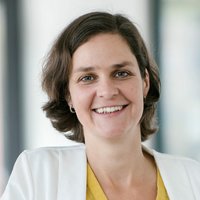
FOSA spokesperson
Dr Kerstin Ludwig
Location: University Hospital Bonn, Institute of Human Genetics, Venusberg
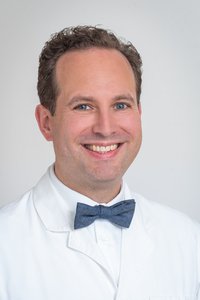
FOSA spokesperson
Prof Dr med Christian Schaaf
Location: Managing Medical Director, Institute of Human Genetics, Heidelberg University Hospital
Focal points
Current research and publications: The members of FOSA Human Genetics have extensive expertise in various areas of human genetics, which includes the investigation of both monogenic and multifactorial diseases. Since the beginning of the pandemic, we have been active in national (in particular the German COVID-19 Omics Initiative (DeCOI; www.decoi.eu)) and international (in particular the COVID-19 Host Genetics Initiative (COVID-19 HGI; www.covid19hg.org)) consortia and have already contributed to the identification of rare and common genetic variants (COVID-19 HGI: Mapping the genetic architecture of COVID-19, Nature, 2021 (PMID 34237774); Nakanishi T et al, J Clin Invest, 2021 (PMID 34597274)). Within the framework of NAPKON, we would like to pursue our own research question, i.e. the elucidation of the host genetics of COVID-19. On the other hand, NAPKON offers the unique opportunity to better understand the biological basis of COVID-19 by integrating genetic, molecular and clinical parameters. We are therefore also looking forward to collaborating with other disciplines and FOSA in NAPKON.
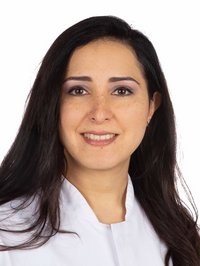
FOSA spokesperson
PD Dr Rebecca Hasseli-Fräbel
Location: University Hospital Münster, Section of Rheumatology and Clinical Immunology
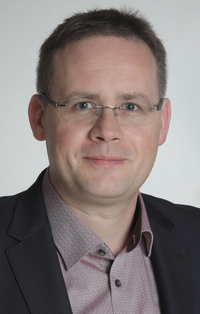
FOSA spokesperson
Prof Dr med habil Alexander Pfeil
Location: Head of the Rheumatology Centre (according to GBA criteria) and the Rheumatology and Osteology Section, Jena University Hospital
FOSA Infectiology has set itself the task of researching the course and clinical markers of COVID-19 disease and reviewing clinical assessment systems.
FOSA spokesperson
Prof Oliver Witzke
Location: University Medicine Essen Clinic for Infectiology

FOSA spokesperson
Dr Anette Friedrichs
Location: University Hospital Schleswig-Holstein
Focal points
Publications(https://napkon.de/forschungsprojekte/):
- Mechanisms of programmed cell death as a therapeutic target in severe COVID-19 - HAP, Sept. 2021
- Reprogramming of immune cells in COVID-19 - SÜP, July 2021
- Differences in the immune response of women and men against COVID-19 - SÜP, June 2021
- Risk assessment for complicated to severe courses of COVID-19 using artificial intelligence - SÜP, June 2021
- Clinical course of the corona variants - SÜP, April 2021
- Influence of antibiotic therapies on the course of COVID-19 (ABCOV) - HAP, SÜP, June 2021
- Review of clinical assessment systems for risk categorisation of patients (scores) NAPKON - SÜP, April 2021
As part of the various research projects such as NAPKON, potentially involved signalling pathways, pathophysiology and various treatment options in COVID-19 patients requiring intensive care are to be evaluated. Further questions concern acute organ dysfunction, inflammation and post-intensive care syndrome.
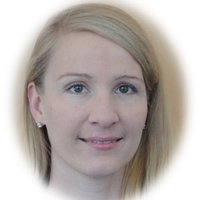
FOSA spokesperson
PD Dr Sandra Frank
Location: Munich University Hospital Clinic for Anaesthesiology
FOSA spokesperson
Prof Patrick Meybohm
Location: University Hospital Würzburg Department of Anaesthesiology, Intensive Care Medicine, Emergency Medicine and Pain Therapy
Focal points
Infection with the SARS-CoV-2 virus is characterised by lung involvement. In its most severe form, this leads to ARDS and presents us with major challenges. Current therapies include ventilation that is as gentle on the lungs as possible, positioning therapy and lung replacement procedures using extracorporeal membrane oxygenation(https://www.ukw.de/medien-kontakt/glossar/suchwort/extrakorporale%20Membranoxygenierung/>(ECMO www.ukw.de/anaesthesie/schwerpunkte/ardsecmo-zentrum-fuer-akutes-lungenversagen/).
The scientists at FOSA Cardiology are working together to generate more knowledge about the central role of the cardiovascular system in the development and progression of COVID-19 disease and long-COVID syndrome.
FOSA spokesperson
Prof Dr Christoph Dieterich
Location: Heidelberg University Medicine, KLAUS TSCHIRA INSTITUTE FOR COMPUTATIONAL CARDIOLOGY, part of the Centre for Internal Medicine (Krehl Clinic)
FOSA spokeswoman
Jun. Prof Dr Sandy Engelhardt
Location: Heidelberg University Hospital, Department of Cardiac Surgery and Department of Cardiology, Angiology, Pneumology
Focal points
The cardiovascular sequelae at various stages of the disease should be better understood. Various areas of expertise from epidemiology to clinical and basic research are brought into cardiovascular research projects. Current research: Members of FOSA Cardiology are involved in evaluation projects of the NAPKON cohorts, but also in the development and implementation of clinical studies.
FOSA Paediatric Radiology deals with the imaging of COVID diseases in children and adolescents and uses the opportunity to bundle the expertise and research activities of the paediatric radiology colleagues as well as interdisciplinary.

FOSA spokesperson
Prof Diane Renz
Location: Hannover Medical School Institute of Diagnostic and Interventional Radiology Paediatric Radiology Department
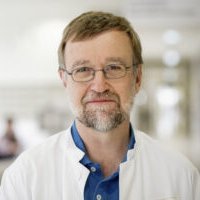
FOSA spokesperson
Prof Hans-Joachim Mentzel
Location: University Hospital Jena Institute of Diagnostic and Interventional Radiology Paediatric Radiology Section
Focal points
- Detailed and systematic survey of COVID manifestations in imaging in children and adolescents.
- Identification of imaging predictors for a good or poor outcome of children and adolescents with COVID-19, e.g. occurrence of Pediatric Inflammatory Multisystem Syndrome (PIMS).
- Development of protocol recommendations for optimal imaging and establishment of structured templates for the diagnosis of the various paediatric COVID manifestations.
Biomarkers are an integral part of medical research. FOSA Laboratory Medicine provides measurement methods and advises researchers on the suitability of the measurement methods used for the respective research question as well as their analytical and medical value. Due to the cross-sectional nature of the subject, there are links to numerous FOSAs and working groups.
FOSA spokesperson
Prof Matthias Nauck
Location: University Medicine Greifswald, Institute for Clinical Chemistry and Laboratory Medicine

FOSA spokesperson
Prof Astrid Petersmann
Location: University Medicine Oldenburg, Institute for Clinical Chemistry and Laboratory Medicine
Focal points
FOSA Laboratory Medicine also deals with plausibility checks, reference ranges and evaluation limits as well as the comparability of measurement methods.
As a network and platform, the NUM can play a crucial role in analysing the short-term and long-term effects on the kidneys of Covid-19 patients in detail and in relation to kidney diseases without a previous COVID-19 infection. This is of great importance, as dialysis or a transplant is often the only way to ensure the patient's life in cases of severe kidney disease. Even before the COVID-19 pandemic, 3-4% of the population in Germany had kidney disease and an estimated 120,000 of these patients require renal replacement therapy (dialysis or kidney transplantation). An additional increase due to acute or post-COVID-19 patients would very quickly require additional dialysis capacities in Germany.
FOSA spokesperson
Dr Miriam Banas
Location: Department of Nephrology University Hospital Regensburg
FOSA spokesperson
Prof Sebastian Dolff
Location: University Hospital Essen, West German Centre for Infectiology
Focal points
Recent studies have shown that SARS-CoV-2 can infect not only the lungs but also other organs, particularly the kidneys (Braun F et al., Lancet, 2020; Puelles VG et al., N Engl J Med, 2020) of patients. This renal tropism is also associated with more severe courses of the disease. In addition, an above-average rate (approx. 27%) of renal failure requiring dialysis was observed in patients with severe disease progression (ventilated). In addition, acute renal failure requiring dialysis in ventilated COVID-19 patients increases their mortality rate to over 75% (Karagiannidis C et al., Lancet Respir Medicine, 2020). The findings to date are primarily based on retrospective data analyses. Unfortunately, even 1 year after the start of the pandemic, there is very little prospective data on both acute and chronic kidney damage and it is not yet possible to predict how many patients will retain permanent kidney damage.
This working group is currently being set up. If you are interested in participating in the working group, please send an email to fosa@nukleus.netzwerk-universitaetsmedizin.de.
The aim of FOSA Neurosurgery is to consistently improve the data situation on diseases in this area. Through the close practical relevance and the closing of current gaps in the evidence, the results should be quickly incorporated into guidelines. To date, 22 university hospitals are participating in FOSA, including leading members of the German Society for Neurosurgery (DGNC) and the Neurosurgical Academy (NCA).
FOSA spokesperson
Prof Christine Klein
Location: University Hospital Schleswig-Hollstein, Institute of Neurogenetics and Department of Neurology
FOSA spokesperson
Dr Samuel Knauss
Location: Charité Universitätsmedizin, Department of Neurology
The main focus and research objectives of FOSA Neurology are the recording of neurological involvement in COVID-19.
Focal points
- In addition to acute manifestations, the main focus is on documenting the long-term course of the disease. For this purpose, a neurological core data set was created in coordination with and extension of the three existing NAPKON core data sets. A special CSF module was developed in order to be able to focus intensively on the pathophysiology of neurological involvement, for which CSF material is an important prerequisite. There are overlaps with FOSA Mental Health on the topic of Long-COVID "Fatigue".
- A further research objective is the clarification of connections between neurological and neuropsychiatric status Current research: Furthermore, there is a regular exchange of experiences and study results within the members of FOSA and specific training courses are planned.
Modules
Module for analysing cerebrospinal fluid samples to improve understanding of the pathophysiology of neurological involvement.
FOSA Neuroradiology deals with morphological and quantitative imaging of the central nervous system in connection with COVID disease.
FOSA spokesperson
PD Dr Ulf Jensen-Kondering
Location: University Hospital Schleswig-Holstein, Institute of Neuroradiology

FOSA spokesperson
Prof Jennifer Linn
Location: University Hospital Dresden Institute and Polyclinic for Diagnostic and Interventional Neuroradiology
Focal points
- Establishment of structured diagnostic templates for brain and spinal cord imaging.
- Development of protocol recommendations.
- Protocol homogenisation for studies with multicentre neuroradiological imaging.
- Support imaging for clinical and epidemiological studies.
FOSA Emergency Medicine aims to establish a research platform for Emergency Departments nationwide in the context of the COVID-19 pandemic and to make a relevant contribution to the primary diagnosis and treatment of COVID-19 cases through the use of routine data and the collection of biosamples from suspected cases and COVID-19 cases.

FOSA spokesperson
Prof Sabine Blaschke
Location: University Medical Centre Göttingen Central Emergency Departments
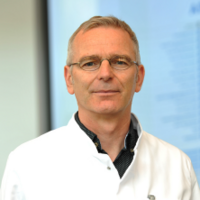
FOSA spokesperson
Prof Martin Möckel
Location: Charité - Universitätsmedizin Berlin Emergency and Acute Medicine
Focal points
In Germany, the Central Emergency Departments (ZNA) of hospitals are playing a very important role in dealing with the COVID-19 pandemic. The focus here is on the primary identification of SARS-CoV-2 infected cases as well as the primary diagnosis and treatment of all organic manifestations of acute COVID-19 diseases and their complications. Emergency Departments therefore represent the crucial interface at which the early identification, diagnosis and disposition of symptomatic patients with COVID-19 or suspected COVID-19 takes place 24/7/365. Current research: FOSA Emergency Medicine is networked with the Forum of University Emergency Departments (FUN) in the VUD with a total of 27 university locations. In addition, there is close cooperation with the AKTIN emergency admission register and real-time care research (AKTIN_EZV) through the use of aggregated routine data in emergency care.
Main research areas
- Risk stratification of suspected SARS-CoV-2 cases
- Clinical epidemiology and phenotyping of symptomatic suspected cases and confirmed SARS-CoV-2 infections.
- Utilisation of Emergency Departments and development of case numbers in relation to other life-threatening cardiovascular/neurological/traumatological emergencies.
- Impact of the pandemic on the performance of Emergency Departments.
Research projects
Slagman A; Behringer W; Greiner F; Klein M; Weismann D; Erdmann B; Pigorsch M; Möckel M; AKTIN Emergency Department Registry; German Forum of University Emergency Departments (FUN) in the Society of University Clinics of Germany E.V.. Medical Emergencies during the COVID-19 pandemic. Dtsch Ärztbl Int 2020; 117(33-34):545-552. doi: 10.3238/arztebl.2020.0545 Wieckenberg M; Meier V; Pfeiffer S; Blaschke S. Risk stratification of emergencies during the COVID-19 pandemic within the emergency department. Med Klin Intensivmed Notfmed 2020 Dec;115(Suppl 3):123-131. doi: 10.1007/s00063-020-00748-2 Suarez V; Köhler F; Hackl MJ; Möckel M; Slagman A; Pudasaini S; Risse J; Schunk D; Blaschke S; Kümpers P; Burst V. [University Emergency Departments in the corona pandemic - Results from the ReCovER registry]. Med Klin Intensivmed Notfmed. 2021 Sep 1:1-8. doi: 10.1007/s00063-021-00859-4
FOSA Nuclear Medicine specialises in imaging the brain, but also the lungs, heart, blood vessels and possibly other organs in patients with and after COVID-19 disease.

FOSA spokesperson
Prof Constantin Lapa
Location: University Hospital Augsburg Clinic for Nuclear Medicine

FOSA spokesperson
PD Dr Isabelle Miederer
Location: University Medical Centre of Johannes Gutenberg University Mainz Clinic and Polyclinic for Nuclear Medicine
Focal points
- Development of standardised evaluation protocols
- Evaluation of imaging parameters for the description and prognosis of disease progression
- Evaluation of inflammatory networks
- Optimisation of image-based therapy decisions
Orthopaedics and trauma surgery are a central player within the entire spectrum of human medicine due to their relevant and interdisciplinary core topic of "movement". They are important for interdisciplinary exchange and collaboration on clinical and research issues that affect the ability to move, independent living and ultimately also the prevention of diseases.

FOSA spokesperson
Prof Georg Duda
Location: Charité - Universitätsmedizin Berlin, Berlin Institute of Health/Julius Wolff Institute - Centre for Musculoskeletal Biomechanics and Regeneration

FOSA spokesperson
Prof Anita Ignatius
Location: University Hospital Ulm - Institute for Trauma Surgical Research and Biomechanics
Focus areas
- COVID-19 in emergency care and elective clinical management.
- Development of better knowledge on patient treatment with regard to the COVID-19 pandemic (movement and long COVID).
- Research expertise from both disciplines, represented by our Collaborative Research Centres (CRCs) and clinical and research groups, among others.
FOSA Paediatrics has set itself the task of determining the SARS-CoV-2 associated morbidity of newborns, infants, toddlers, children and adolescents. The clinical picture of Long COVID in children and adolescents is also recorded and the associated burden of disease analysed.

FOSA spokesperson
Prof Dr med Lars Pape
Location: Director of Paediatric Clinic II, Essen University Hospital
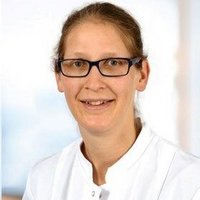
FOSA spokesperson
Dr Folke Brinkmann
Location: Klinikum Bochum gGmbH, Paediatric Pneumology
Focal points
Module: The paediatrics module of NAPKON SÜP takes care of the data and biosample recruitment of paediatric patients with and after SARS-CoV-2 infection as well as age-appropriate controls.
FOSA Palliative Medicine deals with the palliative medical care of seriously ill and dying adults as well as deceased adults and their relatives in times of pandemic.
FOSA spokesperson
Prof Birgitt van Oorschot
Location: University Hospital Würzburg Department of Oncology and Radiology
FOSA spokesperson
Maximiliane Jansky
Location: University Medical Centre Göttingen Clinic for Palliative Medicine
Focal points
In Germany, over 90,000 people have died from or with COVID-19. To date, little is known about the decision-making processes in the run-up to the dying phase, as well as the importance of advance care documents and symptom control in the dying phase. In interview studies, surviving relatives reported both overprovision and under- and misprovision at the end of life. FOSA has therefore included items in the dataset that record the quality of palliative care, documented treatment goals, the existence/importance of advance care documents and the involvement of legally authorised representatives across all sectors (outpatient/inpatient).
Modules
Integration of palliative care items into the cross-sector platform (SÜP).
Research projects
No applications have been submitted to date. This will be done shortly.
FOSA Pathology, Neuropathology, Forensic Medicine aims to improve the quality and diagnostics of autopsy and biopsy samples, or tissues in general. The use of state-of-the-art autopsy procedures increases the acceptance of autopsies and significantly improves the quality of the samples taken. Innovative methods for analysing the samples facilitate pathogen diagnostics and lead to a better understanding of the pathogenesis of SARS-COV2 and other (newly) emerging pathogens.
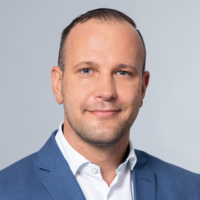
FOSA spokesperson
Prof Benjamin Ondruschka
Location: University Hospital Hamburg-Eppendorf Institute of Forensic Medicine
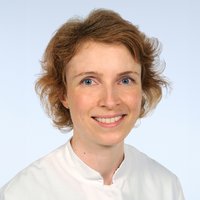
FOSA spokesperson
Dr Saskia von Stillfried
Location: University Hospital RWTH Aachen Institute of Pathology
Focal points
- Development of recommendations and quality standards for post-mortem examinations and sample collection from COVID-19 deceased persons.
- Further development of autopsy methods (e.g. multimodal, minimally invasive, autopsy).
- Optimisation of SARS-CoV2 pathogen diagnostics of autopsy and biopsy samples using innovative (post-mortem) imaging techniques (e.g. non-destructive organ imaging, digitisation and Artificial Intelligence) as well as various "omics" methods.
- Organ-specific expertise for tissue analysis and diagnostics for clinical studies.
COVID-19 patients require rehabilitative measures in the acute hospital, in post-acute care and, if a post-COVID syndrome develops, also in long-term care. The goals of early rehabilitation in an acute hospital are a rapid improvement in mobility, independence in everyday life and psychological well-being as well as a reduction in medical complications and the length of stay. Follow-up treatment promotes the recovery of independence in everyday life, the ability to work and quality of life. If a Post-COVID syndrome occurs, long-term outpatient rehabilitation care with remedies or (partial) inpatient medical rehabilitation may be necessary. In FOSA Rehabilitation, scientists from all university locations with their own departments or institutes for rehabilitative medicine work together with scientists and clinical experts from rehabilitation facilities to answer these questions.

FOSA spokesperson
Dr Christina Lemhöfer
Location: University Hospital Jena, Rehabilitation

FOSA spokesperson
PD Dr Martin Weigl, MPH
Location: LMU Clinical Centre Munich, Physical and Rehabilitative Medicine
Focal points
- Utilisation of NAPKON data to record the frequency of early rehabilitation in acute hospitals, outpatient remedies and inpatient medical rehabilitation measures.
- Effects of COVID disease on days of incapacity for work and subjectively perceived ability to work over a 12-month period are to be investigated and correlated with rehabilitative measures received.
- The prospective data collection of a large patient cohort also enables the identification of prognostic factors during the acute course of the disease for long-term restrictions in the ability to work and for the receipt of rehabilitative measures.
- Findings are important for better management of rehabilitative measures and for planning adequate resources from acute care to long-term care. The optimisation of rehabilitative measures is important in order to avoid long-term restrictions in everyday life, in the ability to work and in quality of life.
- Recording the need for and actual rehabilitative measures as well as evaluating the effectiveness of these measures.
- Even 1.5 years after the start of the pandemic, there are still few meaningful studies on this. For therapy in rehabilitation clinics, initial studies indicate a similar effectiveness as for other diseases, but there is a lack of reference to prospectively collected data during the acute course (Ceravolo et al., Eur J Phys Rehabil Med, 2021; Groah, S.L., et al., Pm r, 2021, Maniscalco, M. et al., Respir Med, 2021).
Modules
An additional rehabilitation module is currently being prepared in the NAPKON project. In this module, the NAPKON cohort is to be enriched with additional patients who were treated in rehabilitation facilities and for whom data from acute care is also available.
FOSA Mental Health in Childhood and Adolescence deals with the direct and long-term consequences of the COVID-19 pandemic and associated social processes, such as contact bans or school closures. It is managed on an interdisciplinary basis by doctors, psychologists and health scientists, works closely with FOSA Paediatrics and complements FOSA Mental Health (in adulthood) with the very important and independent area of mental health in children and adolescents from infancy to young adulthood.
FOSA spokesperson
Prof Christine Freitag
Location: University Medicine Frankfurt am Main, Clinic for Psychiatry, Psychosomatics and Psychotherapy in Childhood and Adolescence
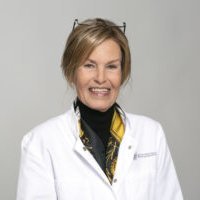
FOSA spokesperson
Prof Ulrike Ravens-Sieberer
Location: University Medical Centre Hamburg, Clinic for Psychiatry, Psychosomatics and Psychotherapy in Childhood and Adolescence
Focus areas
- Close co-operation with FOSA's Human Genetics, Immunology and Autoimmunity and Epidemiology and Public Health.
- Interested in collaborating with the Robert Koch-Institute on anxiety and depressive symptoms, health indicators and social and other media use.
- Focus on anorexia, anxiety, obsessive-compulsive and depressive disorders in childhood and adolescence as relevant aspects for the healthcare system with the aim of developing common targets for clinical studies.
- Establishment of a standardised set of valid measurement instruments to supplement routine somatic and psychiatric diagnostics in childhood and adolescence.
FOSA Mental Health is particularly concerned with the psychological effects of COVID-19.
FOSA spokesperson
Prof Jürgen Deckert
Location: University Hospital Würzburg, Clinic and Polyclinic for Psychiatry, Psychosomatics and Psychotherapy
FOSA spokesperson
Prof Dr Eva Peters
Location: University Hospital Giessen and Marburg, Head of Psychoneuroimmunology Laboratory
Focal points
Current research:
- FOSA Mental Health is particularly concerned with the systematic investigation of mental symptoms and disorders as well as psychosocial stress as relevant factors in connection with COVID-19 disease.
- Analysing the associations between mental symptoms, illnesses and the course of COVID-19 disease
- Analysing quality of life, sociodemographic and psychosocial determinants as relevant factors in connection with COVID-19 disease
- Deriving targeted psychiatric, psychosomatic and psychotherapeutic interventions for COVID-19 and long-COVID patients
Publications
- [Seroprevalence of COVID-19 and Psychosocial Effects in the General Population: Results of the STAAB-COVID-One Programme]. Eichner FA, Gelbrich G, Weißbrich B, Dölken L, Kurzai O, Deckert J, Ertl G, Barth M, Hein G, Neuhauser H, Morbach C, Störk S, Heuschmann P . Public Health 83(12):965-975, 2021.
- Corona Health - A Study- and Sensor-based Mobile App Platform Exploring Aspects of the COVID-19 Pandemic. Beierle F, Schobel J, Vogel C, Allgaier J, Mulansky L, Haug F, Haug J, Schlee W, Holfelder M, Stach M, Schickler M, Baumeister H, Cohrdes C, Deckert J, Deserno L, Edler JS, Eichner FA, Greger H, Hein G, Heuschmann P, John D, Kestler HA, Krefting D, Langguth B, Meybohm P, Probst T, Reichert M, Romanos M, Störk S, Terhorst Y, Weiß M, Pryss R. Int J Environ Res Public Health, 18(14) 7395, 2021.
- Mental health and loneliness in the German general population during the COVID-19 pandemic compared to a representative pre-pandemic assessment. Beutel ME, Hettich N, Ernst M, Schmutzer G, Tibubos AN, Braehler E. Scientific Reports, 11(1), 1-9, 2021.
- SARS-CoV-2 vaccination readiness in the German population during the second pandemic wave. Hettich N, Krakau L, Rückert K, Brähler E, Zahn D, Yilmaz S, Münzel T, Gianicolo E, Schmidtmann I, Schulz A, Wild PS, Lackner KJ, Schuster AK, Beutel ME. German Medical Journal in press.
Approved UAC applications
- Pre-existing mental illness in connection with the course of COVID-19 disease (Hettich/Beutel)
- Health-related quality of life in COVID-19 patients (Hettich/Beutel)
- Effects of the psychological consequences of COVID-19 disease on individual treatment and later ability to work (Hein/Deckert)
- Fatigue after SARS-CoV-2 infection: What leads to it, what is associated with it? (Mätzler)
- Can self-reported psychological distress after COVID-19 disease be predicted by Machine Learning? (Otte)
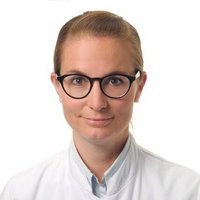
FOSA spokesperson
Prof Sophia Stöcklein
Location: LMU Klinikum München Clinic and Polyclinic for Radiology
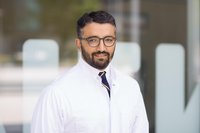
FOSA spokesperson
PD Dr Saif Afat
Location: University Hospital Tübingen, Department of Diagnostic and Interventional Radiology
Focal points
- Examination protocols (MRT, CT).
- Image post-processing.
- Structured reporting, cranial MRI: individualised functional connectome parameters based on resting-state fMRI.
- Cardiac and pulmonary imaging.
FOSA Pain Medicine is researching the pain associated with COVID-19 in order to develop treatment recommendations and prevent it from becoming chronic.
FOSA spokesperson
Prof Winfried Häuser
Location: Technical University of Munich, Centre for Interdisciplinary Pain Therapy and Saarbrücken Hospital, Internal Medicine 1
FOSA spokesperson
Dipl. psych. Nicole Lindenberg
Location: University Hospital Regensburg, Centre for Interdisciplinary Pain Therapy
Focal points
- Importance of pain (abdomen, head, musculoskeletal system) and its association with other symptoms in acute COVID-19 and long-COVID.
- Identification of biopsychosocial predictors of chronic pain (and its association with other symptoms) in long COVID.
- Assessment of pain medicine care needs in long COVID outpatient clinics.
- Development of therapies to prevent the chronification of pain if modifiable risk factors for the development of chronic pain syndromes can be identified.



